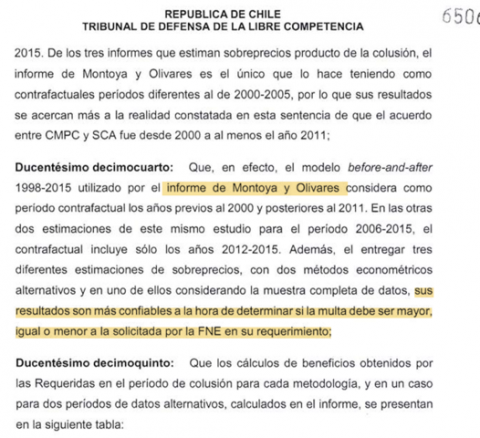
The study prepared by Olivares and Montoya for the National Economic Prosecutor’s Office (FNE) measures the impact of damages caused by the collusion of “papel confort”. The results were taken into account by the FTA ruling, where it was acknowledged that this study was fundamental in the calculation of the fine.
Part of the ruling, released on December 27, states:
“(…) by the delivery of three different estimates of surcharges, with two alternative econometric methods, and with one of them considering the complete data sample, its results are more reliable when determining if the fine should be greater, equal or less than the one requested by the FNE in its request. ”
“In general, it is not that common for this type of recognition to be given to methodological works such as the one we carry out, which is quite satisfying, as it means that our institutions are taking into account the scientific advances in economics and management disciplines”, highlights Marcelo Olivares .
The report prepared by the Department used sales data and retail prices to assess the impact of collusion on prices through two approaches: (1) first in a reduced way, using linear regression methods with “breaks” to measure the impact in price changes and (2) the second based on a structural approach based on the paper by Berry, Levisohn & Pakes 1995 (Econometric), “where we estimate a demand system and then simulate a counterfactual to evaluate what the prices would be under a competitive environment during the collusive period, “Olivares explains.
This is the first time, the academic emphasizes, that this second approach is used in a study of damages.
“It was gratifying that the FTA found it valuable. We feel that we are moving the frontier in the applications of competition regulation in Chile,” he concludes.
An example of how academic studies influence decisions to build a better country.
Cover photo: BíoBíoChile
Industrial Engineering, University of Chile Communications.
MIPP Chile 2025